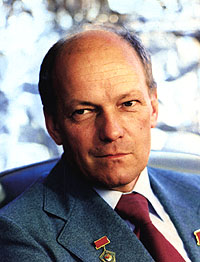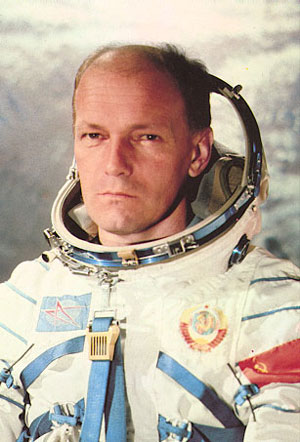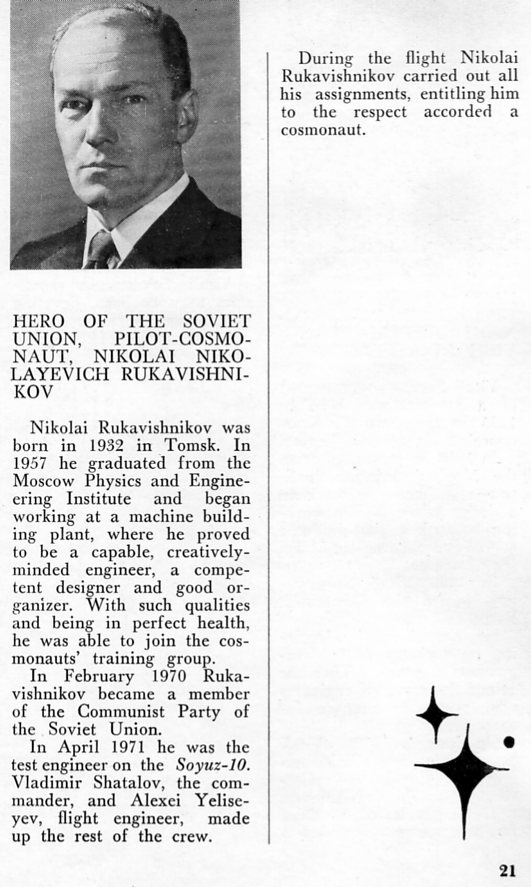
.
 |
Nikolai
Nikolayevich Roukavishnikov |
 |
|
|
|
.
| Naissance : |
18 septembre 1932, à Tomsk,
Russie, Union soviétique. |
| Antécédent
: |
Ingénieur. |
| Sélection : |
1er février 1967: deuxième sélection
de cosmonautes civils soviétiques. |
| 1er vol : |
Soyouz
10 |
6 j. 23 h.
51 min. |
Ingénieur d'essais |
| 2ème vol : |
Soyouz
16 |
5 j. 23 h. 38 min. |
Ingénieur de vol |
| 3ème vol : |
Soyouz
33 |
10 j. 00 h. 39 min. |
Commandant |
| Total : |
|
23 j. 00 h. 08 min. |
|
| Sortie spatiale
: |
Aucune. |
| Retraite : |
7 juillet 1987. |
| Décès : |
18 octobre 2002 (70 ans). |
| Remarques : |
Voir ci-dessous. |
|

Voir aussi :
Fiche
de l'« Historiya Sovietskiy-Russiya
Kosmonavtik » (en russe)
Fiche
de l'Encyclopedia
Astronautica de Mark Wade
Cosmonaut Nikolay Rukavishnikov died
on October 18, 2002, in Moscow, aged 70
Source: Association
of Space Explorer (courtesy of James Oberg)
Nikolay Nikolayevich Rukavishnikov was born in Tomsk, Siberia, on September
18, 1932. He graduated from the Moscow Engineering and Physics Institute
and was immediately swept into the burgeoning Soviet space industry. From
1957 to 1967 he was an engineer with the Korolev OKB, and in 1967 (aged
34) became a cosmonaut. He was a member of one of the two-man teams training
for the L-1 (Zond) manned circumlunar mission, until it was cancelled in
1969. He was then to have been on the first Salyut space station crew but
a docking problem forced his crew to land early in April 1971. When a second
crew succeeded in boarding the station in June, Rukavishnikov was named
to the third crew for a flight in August but that mission was cancelled
following the death of the second crew on their return to Earth. Following
further Salyut failures in 1972 and 1973, Rukavishnikov was named to a
crew which performed a shake-down test of the ASTP modifications, in December
1974, on a non-docking 6-day orbital mission. His last chance to visit
a space station came in April 1984 when he was on the crew of Soyuz T-11.
However, he was replaced due to an illness, and resigned from the cosmonaut
corps (age 51). He returned to full-time work at the Korolev team, by now
known as NPO-Energia (later RSC-Energia).




